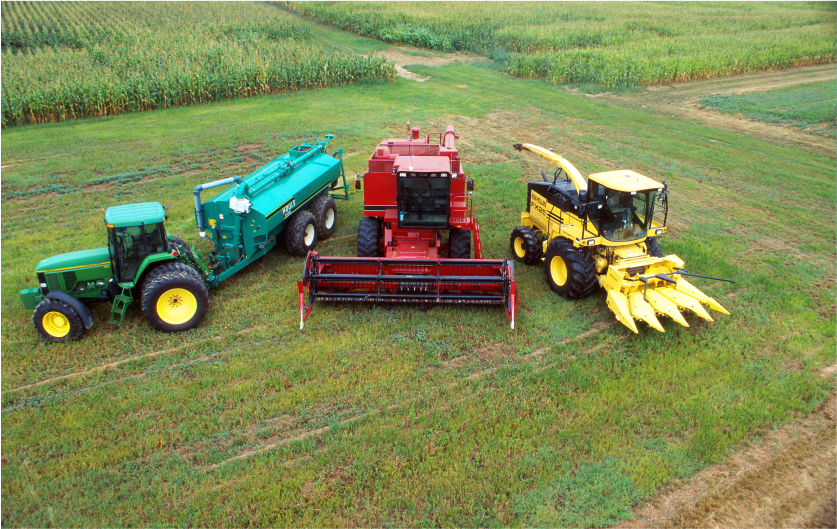[vc_row][vc_column offset=”vc_col-lg-9 vc_col-md-9″ css=”.vc_custom_1452702342137{padding-right: 45px !important;}”][vc_custom_heading source=”post_title” use_theme_fonts=”yes” el_class=”no_stripe”][stm_post_details][vc_column_text css=”.vc_custom_1611187287536{margin-bottom: 20px !important;}”]The following represents many of the possible types of transportation businesses you could decide to start. It all depends on what your personal interest is and what skills you want to employ in your business.
1. Taxi service
Despite its initial controversy and claims of unfair competition, Uber has staked its claim across the world — in fact, in 400 cities and 65 countries. Uber’s attraction as a small-business opportunity is that you’re an independent contractor and on your own schedule. To sign up as a driver, start by going to Uber’s website, and click on the “Become a Driver” button. A short questionnaire initiates the process.
As a driver, you use your own vehicle, so startup costs are relatively low. Uber handles all the financial aspects of the ride. Payment to the driver is on a weekly basis. As independent contractors, drivers take on overhead costs (gas, maintenance, insurance, etc.) themselves. Financial analytics website SherpaShare says Uber drivers everywhere (except New York City where rates are highest) make in the range of $8.80 to $11 per hour gross before Uber’s percentage is taken.
2. Bicycle rental
Renting bicycles is a thriving business in certain areas. The two key environments where renting bikes is a natural are in recreational tourism areas and cities. In tourism areas, you might look to set up near a large hotel or resort where extended vacations stays create ready customers. In this type of business, you’re going to need a storefront as well as a space to store all your rental bikes.
Another possibility for bicycle rentals is a bicycle-sharing approach like Hubway in Boston. Bicycle stands around the city allow riders to rent a bicycle in one place, ride to their location, and drop the bicycle at a stand near their destination. Hubway offers annual or monthly membership or daily passes. Perhaps your town is ready for a mini version of this business.
3. Limousine service
You could provide limo service to celebrities or to regular people. We’ll focus here on the “regular people” limo service.
Whenever anyone is entrusting you to drive them, a clean reputation is important. But in the case of the personal limo service, typically you’ll be driving a group of people who aren’t paying attention to where you’re going or how you’re driving but are enjoying the ride. The driver needs to be supremely trustworthy, and the vehicle needs to be safe and well -maintained.
You can operate the limo yourself, and your fleet of one limousine will be relatively easy to maintain. You can provide all the service yourself, from scheduling to driving. If you want to expand, just add vehicles and drivers, and keep expanding your marketing to keep business flowing.
4. Owner/Operator trucking
Although international trucking, including to Canada and Mexico, is an enormous sector of the trucking industry, we’ll focus here on trucking within the United States. The basic format of the trucking business is to bid on and fulfill contracts. According to the SBA, there are two basic forms of operating, with the key difference being how you get drivers to fulfill those contracts (or accounts if you contract to do all of the trucking for a business):
1. Subcontract drivers. Drivers, in this case, are independent contractors who likely own their own equipment. You’ll spend your time on two key coordination pieces — getting the contracts and accounts with the manufacturers who need goods transported and then finding drivers who can fulfill those contracts on schedule. The advantage is lower costs — independent contractors not only usually have their own vehicles that they maintain themselves but they insure them and themselves as well. Insurance is a huge cost factor in the transportation business, so clearly this is a savings. However, you’ll also be paying them a higher fee than if you were paying your own drivers, which cuts into profits. The real trade here might be in fewer headaches — as long as you feel confident of the drivers you hire.
2. Privately “owned” drivers. In this scenario, you own the trucks and the drivers work for you. You have total control and retain all profit — and you pay all of the expenses of employees and equipment, which means higher startup as well as higher operating costs. While your drivers will be at your service for the accounts and contracts you retain, the pressure is on to have no down time because you’re paying for those drivers and those vehicles whether you’re using them or not.
If coordinating and scheduling is more of your strong suit, you may find that setting up your business using contracted drivers is the best way to go. Or maybe a combination of both — a manageable number of drivers and size of your owned fleet with a stable of contract drivers to call on when you get more contracts than you can handle.
5. Moving van business
Starting a small moving business is relatively easy — which also means you need to keep in mind that you’ll likely be competing with college students who use a rented box truck. Your ace card will be that you’ll set up and conduct your business professionally, perhaps offering add-on services such as space for temporary, in-between moves storage.
Startup costs include purchasing one or more trucks in a range of sizes that will accommodate the type of moving you plan to do. And, of course, you’ll need a place to park them.
You’ll need at least one employee — you can’t lift that sofa alone! And you’ll need to train that employee for packing, moving procedures, customer interactions, how to behave appropriately in a client’s home, etc., so your professional reputation isn’t damaged.
6. Specialty transportation
Specializing in a specific kind of unusual transportation — extremely large items such as airplane parts, or modular houses, or refrigerated perishables, blood, or human organs — can provide a healthy income. You’ll likely have fewer clients but can charge higher fees for the expertise you have or gain from specializing. Depending on where you’re located (for example, a medical transport business in downtown Boston where there are numerous large medical facilities opposed to a small town in southern Indiana) will dictate whether you can do this business yourself or need employees.
7. Livestock transportation
Although you don’t need any specific licenses for transporting personal horses for customers unless you get into commercial-size vehicles that hold many animals, you will definitely need equine or bovine experience for potential clients to trust your ability to transport their animals, and you need to familiarize yourself with the livestock transport regulations for crossing state lines.
Although the livestock owner will be responsible for having their animal ready for transport to its final destination, you’ll want to know the livestock regulations of any state you’ll be entering. Most states have at least minimum requirements of certain infectious tests (including a health exam) and/or vaccinations for entering their state.
Don’t leave it up to horse or cattle owners to know these regulations; while they may be the one lining up and paying the veterinarian who’ll do these tests, you’ll want to be knowledgeable to advise them. It’s to your benefit to make sure they have the proper paperwork for you to show at the final destination or anywhere along the way that’s necessary.
To make sure the trip goes smoothly for the animal, you need to be knowledgeable about livestock or hire someone to do the actual transport who’s knowledgeable. Keep in mind that if you’re transporting any distance and need to overnight, you’ll need to get the animal on and off the trailer several times. And not only do you need to know how to deal with things on the road — tricks to get the horse to drink while traveling and help avoid colic, how to treat or bandage a wound if necessary — you also need to know the basics behind driving carefully while towing a live animal. Getting a veterinary technician license or bringing a certified vet tech with you might be useful and give you an edge for getting customers and word-of-mouth praise.
8. Boats
Transporting boats is another specialty business that can be lucrative and interesting if you’re in a maritime area. Keep in mind that this will be a seasonal business — and extremely busy during the pre- and post-boating season since everyone will want their boat in the water or taken out of the water in the same general timeframe.
You’ll need to decide what kind of boats you want to transport. A speedboat for the lake has a very different trailer requirement than a large sailboat with a mast and a keel. Although motorboat transport would likely be a higher-volume business, it’s also something many boat owners can do themselves. But if you keep your prices reasonable and become known for taking extra good care of the boats you transport, you may find people hiring you to take care of this for them anyway. Motorboat owners are likely to have room in their yard to store them, but if you can provide covered storage, you can have an added-value component to your business. You can also add the service of shrink-wrapping the boat before storage.
The startup funding for boat transport is modest but perhaps surprisingly higher than you might think, especially given the cost of pickup trucks. You’ll need an appropriately sized truck and perhaps two or three different-sized trailers. Also important is liability insurance to cover the boats you transport and the possibilities of things that can happen when you haul things. That storage option is a good expansion aspect to the boat hauling business.
9. Air transport
Transport by air, whether plane or helicopter, involves significant startup costs for equipment, licensing (for yourself and/or employees), and insurance. Small plane transport can be of goods or people like hunters or skiers headed to remote territory, delivering goods or mail to islands, or even transporting freight internationally.
You’d need to get your ducks in a row using a facility that has excellent cargo handling and inspection equipment (especially for agricultural products and other items highly regulated when they move around the country) and customs if you plan to do any international shipping since moving products by air is all about speed.
10. Marine shipping
Transport by boat is a huge business. It’s also a huge business to start. Marine shipping is often done by tankers stacked with containers that get lifted off the trailer of an 18-wheeler and stacked on the boat, typically entails international import/export business, and requires knowledge of customs regulations in general and for specific merchandise. If you’re an expert scheduler and coordinator, perhaps this is the business for you. But, like air transport, be prepared for a lot of research, planning, and need for significant startup resources.
11. Medical transport
Medical transport is an important business in the transportation arena. There are several ways to focus this business. Some require no more than a regular vehicle, driver’s license, and a solid driving record. You could focus on transporting seniors to medical appointments locally, or, if you live in an area that’s some distance from a city, you could focus on driving people long distances to specialist appointments at world-class hospitals.
If you have an EMT license, other medical credentials, or are willing to get them, you could start a business that contracts with hospitals to drive admitted patients to other medical facilities for specialized treatment; this would also require some specialty equipment like oxygen delivery and perhaps a vehicle that can transport a patient in a wheelchair.
12. Senior services
America is aging at a fast pace. As older citizens relinquish their driver’s licenses, there’s opportunity for driving seniors to places they can no longer take themselves. Beyond medical appointments, you could drive seniors to the grocery store or to outings at the mall. If you’re in an area where seniors tend to be low-income, you could consider setting up as a nonprofit and getting grant support to help seniors in your region be more mobile. Grant funders, corporate sponsors, and the federal government are often looking to utilize their funds for human service programs coming to the aid of the most vulnerable citizens.
Credit:
The Staff of Entrepreneur Media, Inc.
[/vc_column_text][vc_row_inner css=”.vc_custom_1452700243026{margin-bottom: 39px !important;}”][vc_column_inner width=”1/2″][vc_column_text]
- Growth through innovation/creativity:
Rather than be constrained by ideas for new products, services and new markets coming from just a few people, a Thinking Corporation can tap into the employees. - Increased profits:
The corporation will experience an increase in profits due to savings in operating costs as well as sales from new products, services and ventures.
[/vc_column_text][/vc_column_inner][vc_column_inner width=”1/2″][vc_column_text]
- Higher business values:
The link between profits and business value means that the moment a corporation creates a new sustainable level of profit, the business value is adjusted accordingly. - Lower staff turnover:
This, combined with the culture that must exist for innovation and creativity to flourish, means that new employees will be attracted to the organization.
[/vc_column_text][/vc_column_inner][/vc_row_inner][stm_post_bottom][stm_post_about_author][stm_post_comments][stm_spacing lg_spacing=”80″ md_spacing=”80″ sm_spacing=”30″ xs_spacing=”20″][/vc_column][vc_column width=”1/4″ offset=”vc_hidden-sm vc_hidden-xs”][stm_sidebar sidebar=”527″][/vc_column][/vc_row][vc_row full_width=”stretch_row” css=”.vc_custom_1459505959648{margin-bottom: -60px !important;}” el_class=”third_bg_color”][vc_column][vc_cta h2=”Looking for an architect engineer or civil eng for your project plan?” h2_font_container=”font_size:20px|color:%23ffffff|line_height:24px” h2_use_theme_fonts=”yes” shape=”square” style=”flat” add_button=”right” btn_title=”Contact Us” btn_style=”flat” btn_color=”theme_style_2″ btn_align=”right” btn_i_align=”right” btn_i_icon_fontawesome=”stm-location” use_custom_fonts_h2=”true” btn_add_icon=”true” btn_link=”url:http%3A%2F%2Folutonycompany.com%2Fcontact-us%2F” el_class=”third_bg_color” css=”.vc_custom_1611557012025{margin-bottom: 0px !important;}”][/vc_cta][/vc_column][/vc_row]







